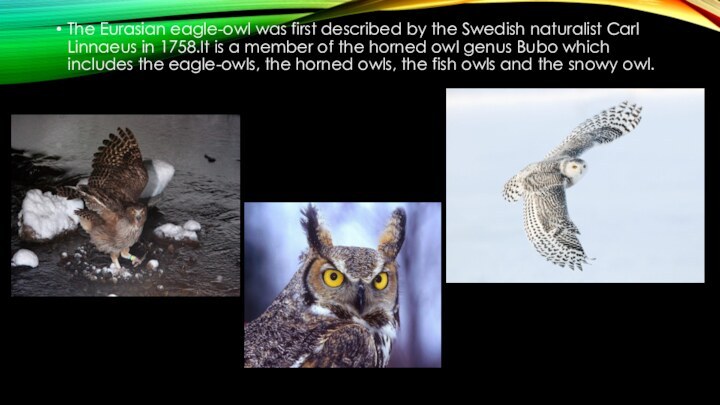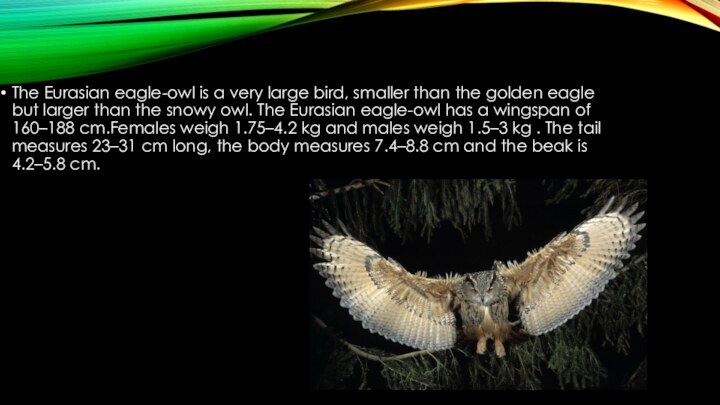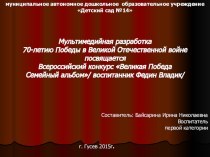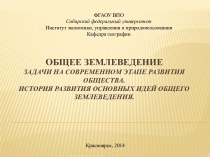- Главная
- Разное
- Бизнес и предпринимательство
- Образование
- Развлечения
- Государство
- Спорт
- Графика
- Культурология
- Еда и кулинария
- Лингвистика
- Религиоведение
- Черчение
- Физкультура
- ИЗО
- Психология
- Социология
- Английский язык
- Астрономия
- Алгебра
- Биология
- География
- Геометрия
- Детские презентации
- Информатика
- История
- Литература
- Маркетинг
- Математика
- Медицина
- Менеджмент
- Музыка
- МХК
- Немецкий язык
- ОБЖ
- Обществознание
- Окружающий мир
- Педагогика
- Русский язык
- Технология
- Физика
- Философия
- Химия
- Шаблоны, картинки для презентаций
- Экология
- Экономика
- Юриспруденция
Что такое findslide.org?
FindSlide.org - это сайт презентаций, докладов, шаблонов в формате PowerPoint.
Обратная связь
Email: Нажмите что бы посмотреть
Презентация на тему The eurasian eagle-owl
Содержание
- 2. The Eurasian eagle-owl was first described by
- 3. The Eurasian eagle-owl is a very large
- 4. Eurasian eagle-owls are distributed seldom through rocky
- 5. The Eurasian eagle-owl is largely nightly in
- 6. The Eurasian eagle-owl can live for up
- 7. The eagle-owl mainly feeds on small mammals
- 8. The population trend is thought to be
- 9. Скачать презентацию
- 10. Похожие презентации
The Eurasian eagle-owl was first described by the Swedish naturalist Carl Linnaeus in 1758.It is a member of the horned owl genus Bubo which includes the eagle-owls, the horned owls, the fish owls and the snowy









Слайд 3 The Eurasian eagle-owl is a very large bird,
smaller than the golden eagle but larger than the
snowy owl. The Eurasian eagle-owl has a wingspan of 160–188 cm.Females weigh 1.75–4.2 kg and males weigh 1.5–3 kg . The tail measures 23–31 cm long, the body measures 7.4–8.8 cm and the beak is 4.2–5.8 cm.Слайд 4 Eurasian eagle-owls are distributed seldom through rocky areas.
They are often found in the largest numbers in
areas where cliffs are surrounded by a scattering of trees and bushes. Taiga, rocky coast lines, steppe and grasslands, may also be visited, largely while hunting. Their territories cover on average about 42.5 square km. They can also be found at sea level and on islands.Слайд 5 The Eurasian eagle-owl is largely nightly in activity.
It has a number of vocalizations that are used
at different times. The song, which can be heard at great distance, is a deep resonant ooh-hu for the male, and a more high-pitched uh-hu for the female. These calls are repeated at intervals of up to a minute.Слайд 6 The Eurasian eagle-owl can live for up to
twenty years in the wild and have possibly survived
up to 60 years in zoo collections.The leading causes of death for this species are man-made: electrocution, traffic accidents and shooting sometimes kill or wound it.





























